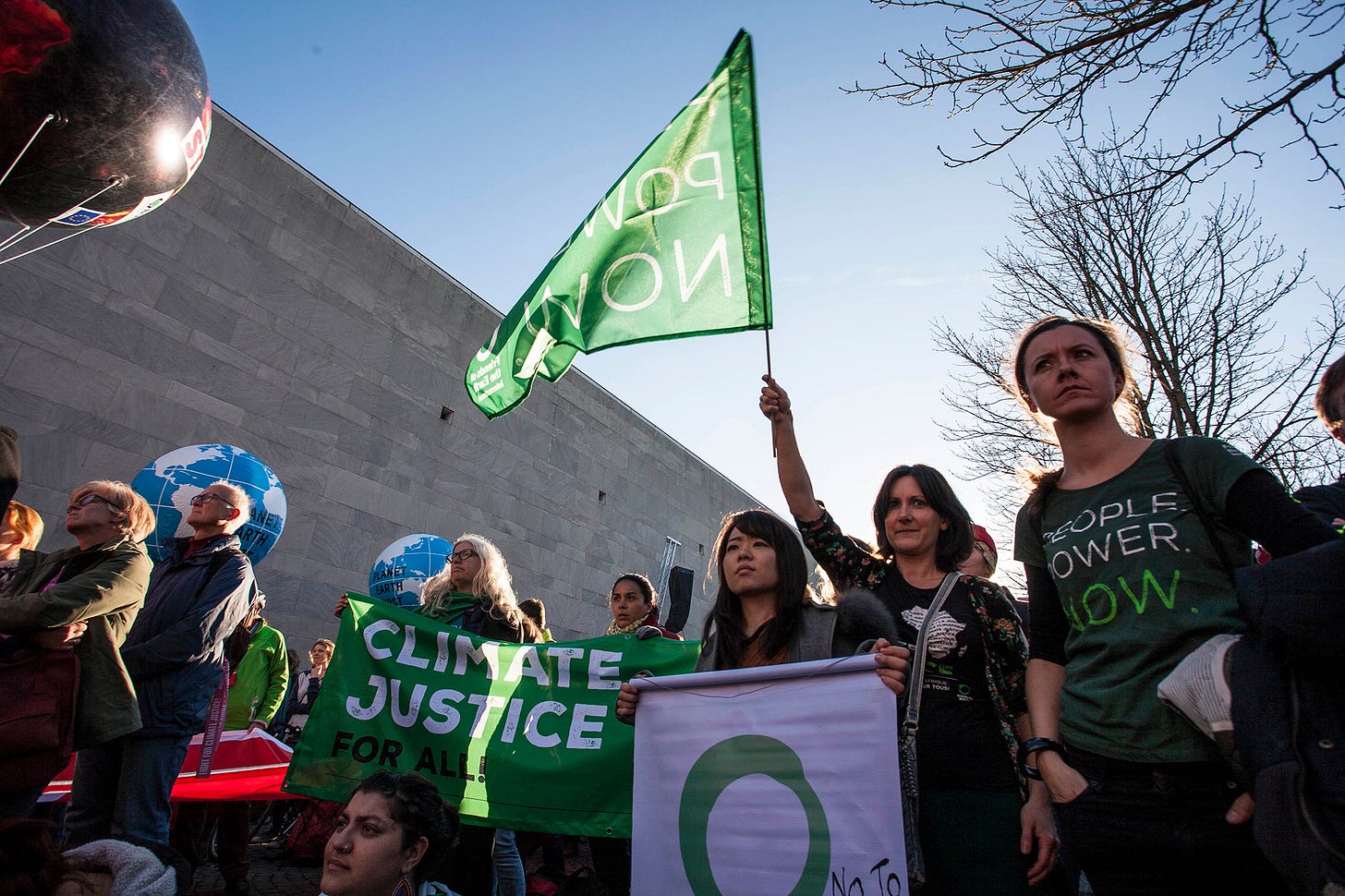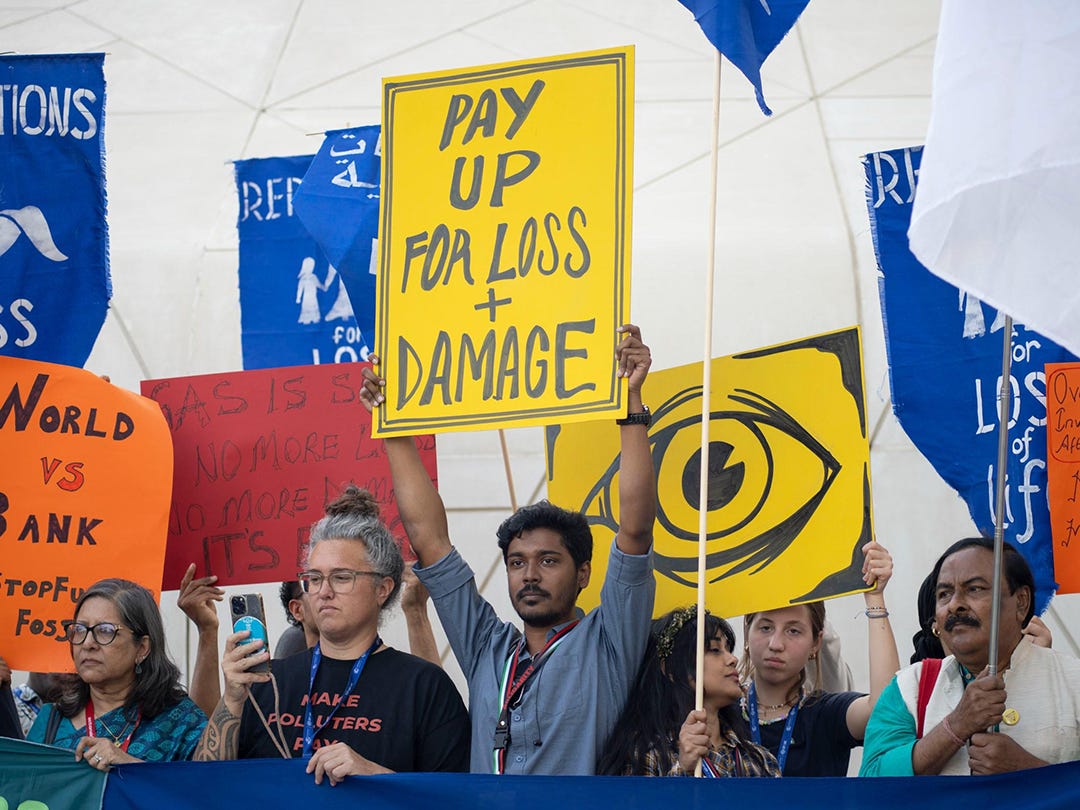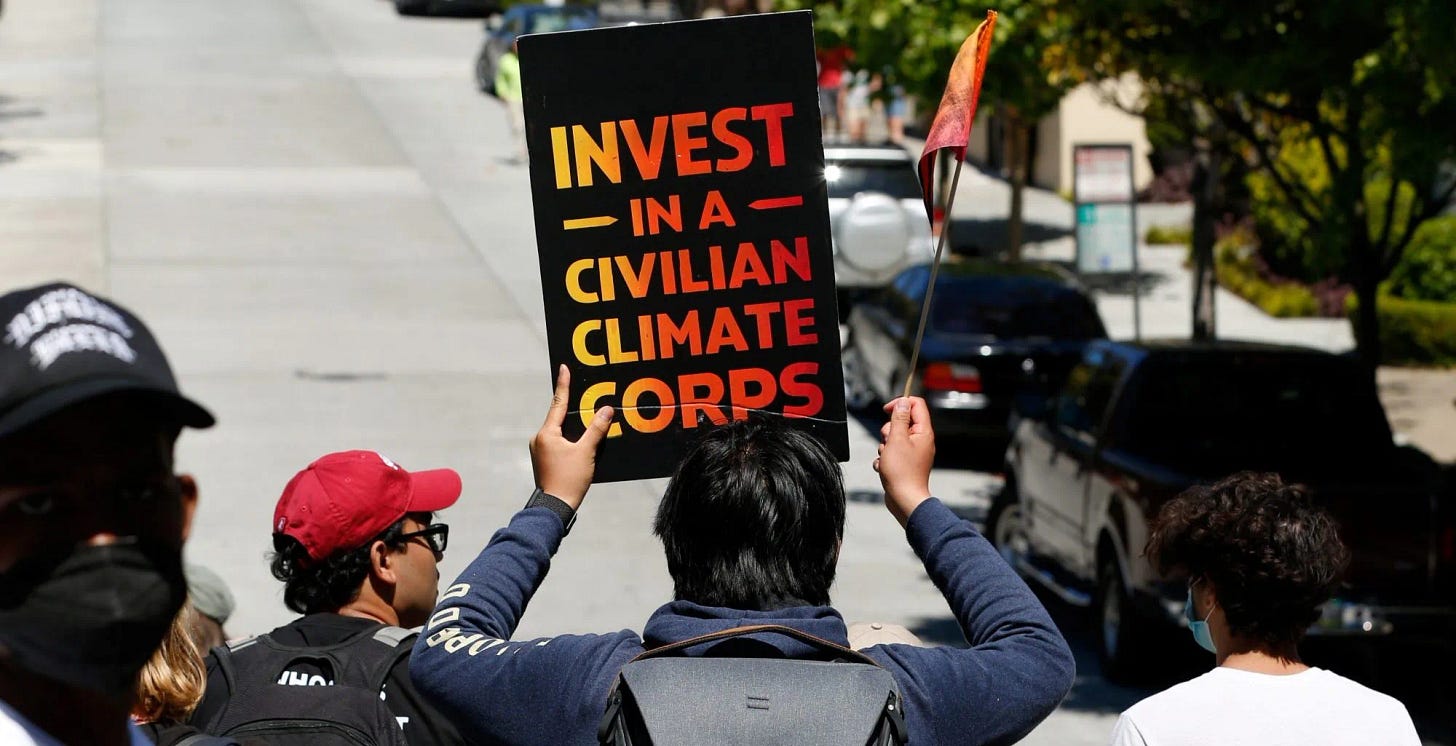What should we expect in climate action in 2024?
It's shaping up to be a big year for the planet
2023 was a big year for the climate, and the news seemed mostly negative. It was the hottest year on record, and 2024 is shaping up to be even hotter. We saw many climate-related natural disasters, oil and gas companies dragging their feet on climate action, and countries lagging on their climate commitments. Those things will surely continue into 2024.
There have also been many wins, however, and some of them are shaping up to be pivotal in 2024. Climate action is ramping up in many countries worldwide, and the tides are beginning to shift in favor of action. Here are some of the moves to pay attention to this year in the climate space.
#1: Climate litigation is taking off, putting fossil fuel companies on the defensive
Climate litigation is becoming a key tool in the climate fight, and it’s not slowing down anytime soon. Over 1,557 climate-related cases have been filed since 2015, and some key decisions are paving the way for new legal precedents for the climate. Many U.S. states have filed cases against fossil fuel companies for fueling disinformation campaigns or hiding their research on climate change for decades, demanding monetary compensation that could be used for climate mitigation efforts. Young people have also been at the helm of climate litigation cases, demanding that their governments safeguard their right to a healthy environment.

In Ontario, Canada, a group of seven young people argued in front of the court that the government’s weakening of their 2030 climate commitments violated their right to a healthy environment. Although their case was initially dismissed, they’re headed to the court of appeals in January 2024, so we need to keep our eyes on their case. As more of these trailblazing cases come to trial, we can expect to see their numbers rising as more groups follow suit.
#2: The climate money from richer countries is finally starting to flow
The establishment of the Loss and Damage fund this year at COP28 was a huge step forward in the long process of compensating less-wealthy countries for the devastating effects of climate change. Because these countries are often the hardest-hit by climate disasters while also contributing the least to them, this money is a crucial step towards climate justice. Although the fund still leaves a lot to be desired, it’s being rolled out quickly, which is a plus–the World Bank is expected to begin payouts this year.

So far, US $655 million has been pledged to the fund, with more expected to come in. This isn’t nearly enough–researchers estimate that countries will need between $290 billion and $580 billion to begin to cover projected damages. However, projects like the Bridgetown initiative, which aim to reform the global financial system so that it can better respond to the needs of climate-vulnerable nations, are steps in the right direction.
#3: We’re seeing greater government investments in sustainable jobs
Legislation like the Canadian Sustainable Jobs Act, which is projected to become law in 2024, creates pathways for shifting the workforce away from fossil fuels and towards sustainable energy and other sectors of the clean economy. It requires that the government update on its progress every five years as to how it is creating sustainable jobs and supporting communities in the shift to net-zero. In the U.S., President Biden launched the American Climate Corps in late 2023, a program to train young people to work in careers in clean energy and other climate-related fields.

Most positions do not require prior experience or a college degree, making these careers accessible to many more people. It aims to employ at least 20,000 people in its first year. In Canada, movements are calling for a similar youth climate corps for the country, an initiative supported by the majority of Canadians.
#4: Renewables deployment is making substantial progress
According to the International Energy Agency, the world is projected to “add as much renewable power in the next 5 years as it did in the past 20.” This is 30% higher than was even projected one year ago. By 2025, renewables are expected to be the largest source of electricity worldwide, overtaking coal.

China is deploying methods like solar especially quickly; the country is expected to account for half of all new solar projects by 2024. However, countries such as the U.S. are also seeing record growth due to the reduced cost of solar panels and incentives from legislation like the Inflation Reduction Act.
#5: A new plastics treaty is in the works

A binding treaty on plastic pollution currently in negotiations is set to be finalized by the end of 2024. Although talks are ongoing, one option on the table is to put limits on the plastic production of each country (unsurprisingly, Saudi Arabia and the U.S. are resisting this). Plastics are widely seen as the fossil fuel industry’s “Plan B,” so lobbyists are expected to put up a fight. Still, this treaty is shaping up to be an important arena for negotiating future action on climate change. The next round of negotiations is set to take place in Ottawa this April.
#6: The rights of nature are becoming mainstream
The push to expand rights frameworks beyond human-centricity is expected to grow this year. Projects like More Than Human Rights (MOTH) are pushing for a more interdisciplinary approach to rights, holding conferences later this year. The parliament in Scotland has also released a trailblazing Ecocide bill that would criminalize acts of major destruction of the environment. If it passes, it could set a precedent for global environmental law and is an opportunity to hold polluters accountable and deter the kind of negligence that currently goes largely unpunished. There’s currently a public consultation underway, and members of parliament are expected to vote on the law this year.
Of course, amidst these promising moves, many things are moving in the opposite direction. However, many of the actions listed above were projected to take much longer than they have. Things are beginning to speed up. It can be hard to see the forest for the trees at times, so it’s important to spotlight the things that are happening on a global scale to remember what we’ve accomplished so far–and where we still need to make progress.
We have to keep up the momentum moving in 2024 to make sure that governments keep their promises, corporations are held accountable for their harms, and climate action stays high on the agenda.
Here’s to a purposeful and transformative 2024.
Years and Years is a miniseries that centers on how one family goes through the next 20 years of our society, starting in 2019. It shows both the crises and opportunities that face us in the coming decades.
Capital in the 21st century is a documentary touching on how our economy is built on inequality and tax loopholes that enable wealth and power being concentrated in the hands of the very few.
This article from The Guardian highlights how the rights of nature are becoming a more mainstream idea, with many initiatives pushing us to think beyond our anthropocentric approach to rights.
Every few weeks, we’ll give you a roundup of sustainability jobs currently hiring for new positions. Forward them to anyone who might be interested in kickstarting their career in sustainability!
Hatch | Intermediate Environmental Consultant
(Full-time, Regina, SK)
GHD | Environmental Project Director
(Full-time, Quebec)
Farm Centre Association | Therapeutic Horticulture Program Co-coordinator
(Full-time, Charlottetown, PEI)
Nature Canada | Social Media Manager
(Full-time, hybrid, Ottawa, ON)
Teck Resources Limited | Environmental Science Co-op Student
(Temporary 8-12 months, Sparwood, BC)






